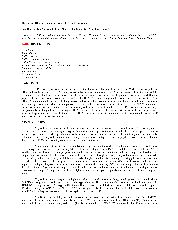摘要
BRAF is a cytoplasmic serine-threonine protein kinasethat plays a critical role in the MAPK signaling pathway. BRAF is the only member of the RAF family activated by mutation in human cancers. A single amino acid substitution (V600E) accounts for a multitude of human cancers, which causes constitutive kinase activity. In papillary thyroid cancer (PTC) and papillary-derived anaplastic thyroid cancer (ATC), the BRAF(V600E) mutation promotes follicular cell transformation. The BRAF(V600E) mutation could provide valuable prognostic information for thyroid cancer, because this mutation has been correlated with more aggressive and iodine-resistant phenotypes. Evidence has also shown that the detection of the BRAF(V600E) mutation in cancer is crucial in order to identify novel avenues for thyroid cancer treatment. Based on the BRAF kinase structure, novel drugs can potentially be designed to target oncogenic BRAF in cancer therapeutics. This review will focus on the recent progress in understanding the functions of BRAF, the role of the BRAF mutations in thyroid carcinoma, and the correlation between BRAF mutations and cancer microenvironment.
